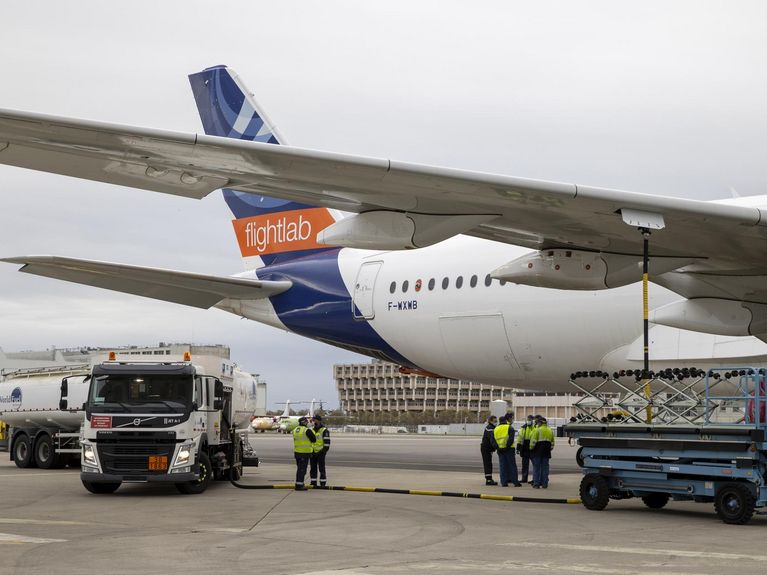
Challenge #62
Developing alternative fuels for aviation.
Alternative fuels currently offer the greatest potential to reduce the climate impact of aviation in the short term. To this end, DLR is researching the design, production, and use of fuels, with a focus on safe combustion processes and their impact on the climate.
Participating centers
Industry, politics, and research are aiming to achieve climate neutrality in air transport by 2050. To reach this goal in spite of air travel’s projected growth, CO2 emissions from aviation must first be reduced and maintained at the levels emitted in 2005. New alternative fuels are a major lever for improving the climate impact of aviation as CO2 can be saved through their production and emissions can be reduced through more efficient fuel consumption.
Alternative aviation fuels, also called sustainable aviation fuels (SAF), can be produced from renewable energy sources from biomass or by power-to-liquid processes. In addition, the reduced emission of pollutants from SAF reduces the formation of contrails, which have been shown to have an even greater impact on the climate than CO2 emissions. However, the use of SAF requires substantial developments in the area of engine technology and aviation fuels. To take on this challenge, our scientists at DLR are working on fuel design and studying the use of sustainable fuels in passenger aircraft and their impact on the climate.
(Header: Airbus/S. Ramadier)